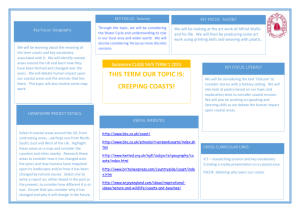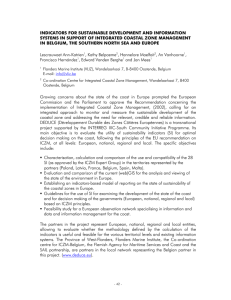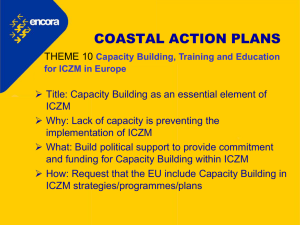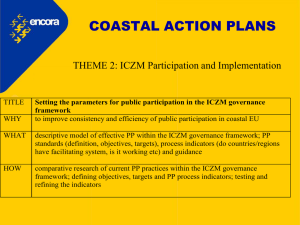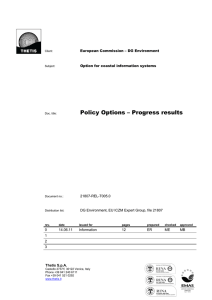PREFACE ORGANISING COMMITTEE
advertisement
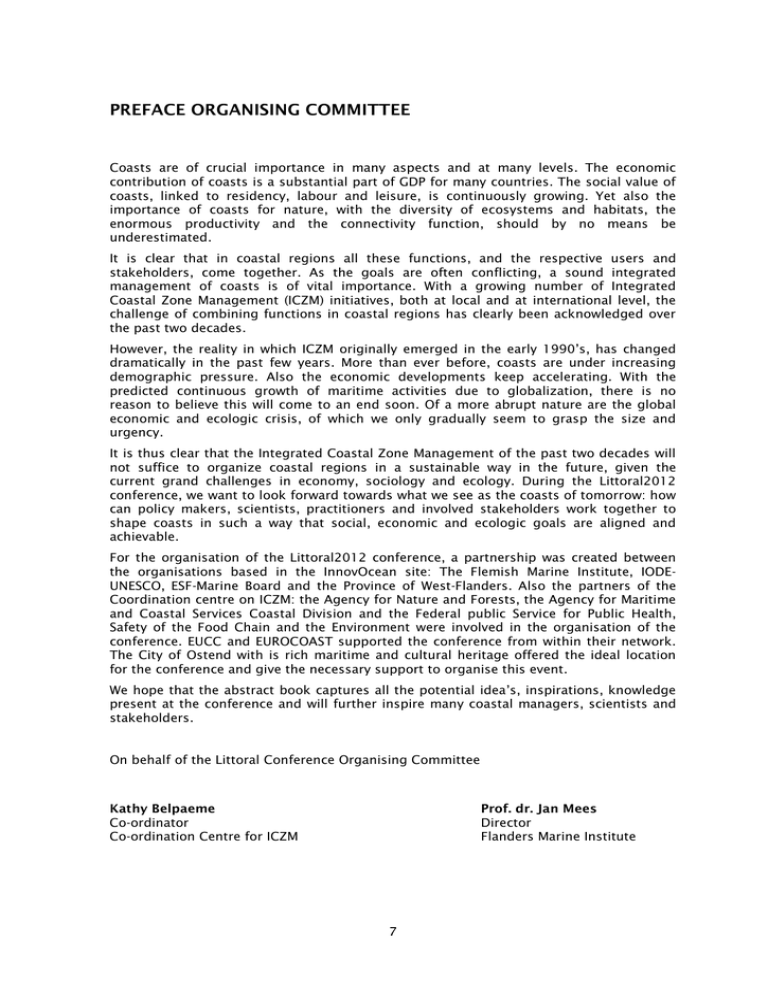
PREFACE ORGANISING COMMITTEE Coasts are of crucial importance in many aspects and at many levels. The economic contribution of coasts is a substantial part of GDP for many countries. The social value of coasts, linked to residency, labour and leisure, is continuously growing. Yet also the importance of coasts for nature, with the diversity of ecosystems and habitats, the enormous productivity and the connectivity function, should by no means be underestimated. It is clear that in coastal regions all these functions, and the respective users and stakeholders, come together. As the goals are often conflicting, a sound integrated management of coasts is of vital importance. With a growing number of Integrated Coastal Zone Management (ICZM) initiatives, both at local and at international level, the challenge of combining functions in coastal regions has clearly been acknowledged over the past two decades. However, the reality in which ICZM originally emerged in the early 1990’s, has changed dramatically in the past few years. More than ever before, coasts are under increasing demographic pressure. Also the economic developments keep accelerating. With the predicted continuous growth of maritime activities due to globalization, there is no reason to believe this will come to an end soon. Of a more abrupt nature are the global economic and ecologic crisis, of which we only gradually seem to grasp the size and urgency. It is thus clear that the Integrated Coastal Zone Management of the past two decades will not suffice to organize coastal regions in a sustainable way in the future, given the current grand challenges in economy, sociology and ecology. During the Littoral2012 conference, we want to look forward towards what we see as the coasts of tomorrow: how can policy makers, scientists, practitioners and involved stakeholders work together to shape coasts in such a way that social, economic and ecologic goals are aligned and achievable. For the organisation of the Littoral2012 conference, a partnership was created between the organisations based in the InnovOcean site: The Flemish Marine Institute, IODEUNESCO, ESF-Marine Board and the Province of West-Flanders. Also the partners of the Coordination centre on ICZM: the Agency for Nature and Forests, the Agency for Maritime and Coastal Services Coastal Division and the Federal public Service for Public Health, Safety of the Food Chain and the Environment were involved in the organisation of the conference. EUCC and EUROCOAST supported the conference from within their network. The City of Ostend with is rich maritime and cultural heritage offered the ideal location for the conference and give the necessary support to organise this event. We hope that the abstract book captures all the potential idea’s, inspirations, knowledge present at the conference and will further inspire many coastal managers, scientists and stakeholders. On behalf of the Littoral Conference Organising Committee Kathy Belpaeme Co-ordinator Co-ordination Centre for ICZM Prof. dr. Jan Mees Director Flanders Marine Institute 7
